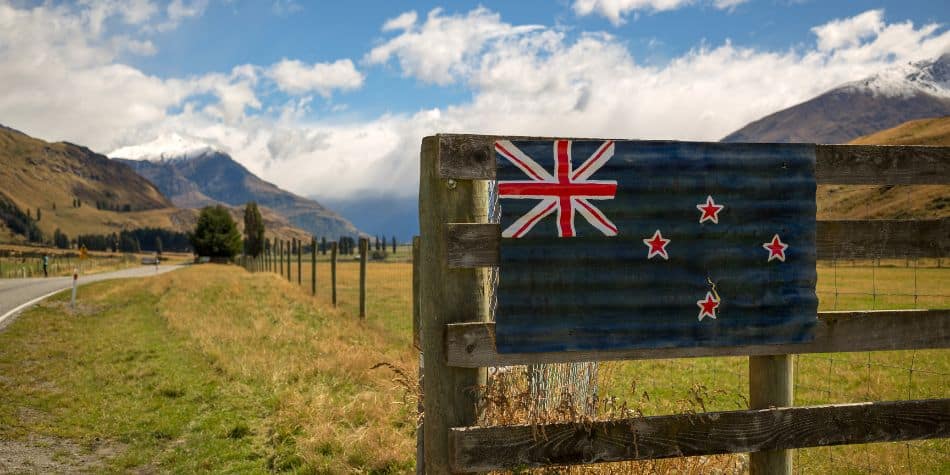If you’re considering sending items to New Zealand, knowing what’s allowed and what’s not is essential. This guide delves into the restricted and prohibited items for a smooth transition.
When preparing to move to New Zealand, knowing which items are restricted or prohibited is essential. Familiarising yourself with these rules ensures a smoother shipping experience, helping you avoid potential delays, extra costs, or penalties.
PSS is prepared to provide expert advice and assistance if you need help shipping your items from the UK to New Zealand. For your convenience, we have sorted what you can and cannot bring to New Zealand into helpful categories to make it easier for you to check when packing your possessions.
NB: This guide is for information purposes only. Whilst we have done our best to ensure it is accurate and up to date, rules are subject to change, and you should do your due diligence and speak to an adviser to assess your circumstances.
Whilst you can’t take prohibited items, we highly recommend not shipping restricted items, which can cause delays and added costs.
Get A Quote For Shipping To New Zealand
Contents
- 1. Restricted Items You Can Bring To New Zealand From The UK
- 2. Prohibited items you cannot bring to New Zealand from the UK
- 3. New Zealand Biosecurity and Customs Clearance
- 4. Prohibited and restricted items for air freight shipping
- 5. Bringing pet cats and dogs to New Zealand
- 6. Packing your belongings for your move to New Zealand
1. Restricted Items You Can Bring To New Zealand From The UK
While some items may be permitted duty-free entry into the country, others require declaration and inspection upon arrival. This careful procedure aims to intercept potentially harmful or prohibited items, preventing threats to New Zealand’s ecosystem, agriculture, and public health.
Refraining from including the restricted items listed below in your unaccompanied luggage or shipment is advisable to avoid customs clearance delays and additional inspection fees.
Food, drink and other consumables
Medicines, cosmetics and toiletries:
It is often worthwhile shipping your electrical goods to New Zealand. For further information, visit our guide to shipping electrical goods and appliances.
Currency
Household items, tools and possessions
Seasonal goods
Oddities and unusual items
2. Prohibited items you cannot bring to New Zealand from the UK
You won’t be allowed to bring certain items to New Zealand from the UK. These include:
Types of Prohibited Items
- Any item that is prohibited or restricted under New Zealand law, such as drugs, weapons, and endangered species
- Anything that is considered to be a biosecurity risk, such as fresh fruits, vegetables, and meat (other than small quantities for personal consumption while travelling)
- Any item that is considered to be a quarantine risk, such as plants and animals
- Any item that is deemed to be a cultural or religious artefact
- Any item that is considered to be a counterfeit or pirated product
- Liquid oxygen systems (gaseous oxygen cylinders require approval)
- Disabling devices containing an irritant or incapacitating substance, such as pepper spray
- Electric shock weapons containing dangerous goods such as explosives, compressed gas or Lithium batteries
- Aerosols that are not medicinal or toiletry items
- Security type equipment – such as attaché cases, cash boxes and cash bags – that include lithium batteries, pyrotechnical material or other dangerous goods as part of the equipment
- Hoverboard, Mini-Segway, solo wheel, air wheel, balance wheel, Lithium powered skateboard or Personal transportation devices with on-board storage and similar Lithium battery-powered small recreational vehicles
- Installed or spare lithium batteries with ratings of more than 160Wh or 8g lithium content
- Durian fruit cannot be carried, either on your person, in a carry-on or checked-in luggage.
Batteries
Spare or loose batteries for medical devices are generally prohibited for shipping by sea freight or air as check-in or unaccompanied luggage. However, when packed correctly, they can be taken as carry-on baggage. Approval is required for Lithium battery-powered portable medical devices with installed batteries. Gaseous (not liquid) oxygen or air cylinders required for medical use will also need pre-approval.
Here is a detailed breakdown of what you cannot carry into the country.
Drugs
| Description: | Notes: | |
| Drugs, including illegal drugs and prescription drugs without a valid prescription | You must show a valid prescription for medication prescribed in the UK |
Explosives items
| Description: | Notes: | |
| Fireworks | Not allowed | |
| Explosives and flammable liquids | Not allowed |
Pets and other animals
Weapons
Other prohibited items
3. New Zealand Biosecurity and Customs Clearance
Why is the New Zealand Customs Service so strict?
New Zealand has many reasons for being strict about what can be carried into the country when moving from the UK. These reasons include:
- To protect the environment: New Zealand has a unique and fragile environment that is important to protect. Prohibited items, such as plants and animals, could introduce new diseases or pests that could damage the environment.
- To protect the health of its citizens, New Zealand has a strict drug policy and prohibits the importation of illegal drugs. Prohibited drug utensils could be used to take drugs, which could have serious health consequences.
- To maintain its reputation as a drug-free country, New Zealand has a reputation for being a drug-free country. Prohibited drug utensils could damage this reputation and make keeping drugs out of the country more challenging.
In addition to these reasons, New Zealand has some specific laws and regulations that govern what can be brought into the country. These laws and regulations are designed to protect the environment, the health of its citizens, and the country’s reputation.
Here are some of the specific laws and regulations that govern what can be brought into New Zealand:
- The Biosecurity Act 1993: This law prohibits the importation of plants, animals, and other biological materials that could pose a risk to New Zealand’s environment.
- The Misuse of Drugs Act 1975: This law prohibits the importation of illegal drugs and drug utensils.
- The Customs Act 2018: This law governs the importation of all goods into New Zealand, including prohibited items.
If you plan to move to New Zealand, you must know the country’s strict import regulations. More information about these regulations is on the New Zealand Customs website.
Items that require a permit
Several items require a permit to be allowed into New Zealand. These items include:
- Firearms and ammunition: Firearms and ammunition are prohibited in New Zealand, with some exceptions. If you are bringing firearms or ammunition into New Zealand, you must apply for a permit from the New Zealand Police.
- Dangerous goods: Dangerous goods, such as flammable liquids, explosives, and poisons, are prohibited in New Zealand. If you bring dangerous goods into New Zealand, you must apply for a New Zealand Customs Service permit.
- Animal products: Some animal products, such as ivory and rhino horn, are prohibited in New Zealand. If you bring animal products into New Zealand, you must apply for a permit from the New Zealand Department of Conservation.
- Plants and plant products: Some plants and plant products, such as seeds and cuttings, are prohibited in New Zealand. If you bring plants or plant products into New Zealand, you must apply for a permit from the New Zealand Ministry for Primary Industries.
- Cultural objects: Some cultural objects, such as Maori artefacts, are prohibited in New Zealand. If you bring cultural things into New Zealand, you must apply for a permit from the New Zealand Ministry for Culture and Heritage.
If you are unsure whether or not an item requires a permit to be allowed into New Zealand, you should check with the New Zealand Customs Service. You can find more information on their website.
Items that may be subject to inspection
Any item that is not on the prohibited or restricted list may still be subject to inspection by New Zealand Customs. This includes things such as clothing, electronics, and personal belongings.
What to do if you are unsure about an item
It is important to note that New Zealand’s Customs Service has the right to seize any prohibited or restricted item. You may also be fined or prosecuted for bringing banned or restricted items into New Zealand.
If you are unsure whether an item is prohibited or restricted, contact the New Zealand Customs Service for more information.
Preparing Your Personal Effects for Shipment to New Zealand: Contaminated Items
When preparing your personal effects for shipment to New Zealand, you must know the country’s strict biosecurity regulations. This means that you cannot bring any contaminated items into the country.
Contamination can be caused by a variety of things, including:
- Animal or plant matter: This consists of any food, soil, plants, or animals that could introduce new diseases or pests into New Zealand.
- Water includes any water containing bacteria or other microorganisms that could harm New Zealand’s environment.
- Soil contains pests or diseases that could harm New Zealand’s plants or animals.
If you bring any of these items into New Zealand, you must ensure they are not contaminated. This could include:
- Declaring the items to Customs: When you say your personal effects to Customs, you will need to report any items that could be contaminated. This will help Customs to identify any potential risks and take appropriate action.
- Cleaning the items: You may need to clean the items to remove any dirt, debris, or other materials that could harbour contaminants.
- Disinfecting the items: You may need to disinfect the items to kill any bacteria or other microorganisms that could be present.
If you are not sure whether an item is contaminated, it is best to err on the side of caution and not bring it into New Zealand. By following these guidelines, you can help to protect New Zealand’s environment and its citizens.
Get A Quote For Shipping To New Zealand
Items of biosecurity concern
- Pack your items carefully to prevent them from being damaged or contaminated.
- Label your boxes clearly: Label your boxes clearly with the contents and the country of origin. This will help Customs to identify your shipment and take appropriate action.
- Keep your receipts: Keep your receipts for all of your purchases. This will help prove that you have purchased the items legally and they are not contaminated.
Here is a breakdown of what personal effects may be of biosecurity concern and will need to be cleaned before shipping to New Zealand.
| Category | Items |
| Animal equipment including, but not limited to:
|
Animal beds, bedding, and baskets
Animal grooming equipment, leads and restraints, saddlery, and other tacks Fish tanks and equipment, fish food, aquarium rocks Pet cages Pet food, naturopathic supplements, medicines, bowls, mats, utensils, and storage containers Pet wear, toys, and rawhide chews Portable and electronic fencing. |
| Artefacts/Furnishings/Ornaments/Souvenirs including, but not limited to: | Animal products such as bones, antlers, feathers, animal hair and hide
Beads, necklaces made of plant/animal material Carpets, mats, rugs Commercially manufactured instruments such as pianos, clarinets, oboes, violins, and guitars. Dried plant products include banana products, photo albums, hats, bags, mats, and baskets. Fossils, rocks, sand, shells, soil, stones Non-commercially manufactured musical instruments such as rawhide drums, rainmakers, maracas, and pan pipes. Plant products, including bark, seeds, potpourri, dried flower arrangements, sphagnum moss, natural stems Pillows, including Thai pillows containing plant/animal material Sand, seeds or soil used as a filling Statues made of clay or compressed sand Wooden spears, bows and arrows. |
| Camping equipment including, but not limited to: | Backpacks/day packs
Boots, climbing implements Camping chairs Hiking/walking sticks Picnic baskets, cooler box/esky Picnic rugs, groundsheets Tents, tent poles, tent pegs. |
| Clothing including, but not limited to: | Farm/outdoor clothes
Footwear such as gumboots, footwear with wooden components Hats made of straw or other plant material. |
| Farm goods, vehicles and motorised equipment, including but not limited to: | All-terrain vehicles (ATVs), quad bikes, motorcycles
Carts, horse floats Farm equipment Jet skis, motorboats, outboard motors (must be dry) Non-machinery and non-fuel-operated items used in and around farms Toolboxes, generators Tyres. |
| Festive decorations including, but not limited to: | Blown Eggs
Christmas trees, natural or artificial Conifer items, pinecones Dried holly, sphagnum moss, vines, wreaths Seed pods, straw. |
| Garden equipment, garden furniture and tools including, but not limited to | Any plant material
Barbeques/grills Fertiliser, garden seeds Fountains, statues Garden tools and Implements Lawnmowers, ride-on mowers, and catchers Outdoor tables and chairs Plant pots Sheds Used tools Waste bins Wheelbarrows Whipper snippers, weed eaters Wine barrels. |
| General items include, but are not limited to: | Brooms, dustpans, and brushes
Vacuum cleaners and bags Waste bins. |
| Kitchen – all food and pantry items including, but not limited to: | All fresh foods such as potatoes, onions, garlic
Dried/dehydrated food items such as herbs, teas, rice Pre-packaged food such as snacks, protein powders and supplements. |
| Kitchenware including, but not limited to: | Flat-packed prefabricated kitchens
Food containers, kitchen utensils Large appliances such as refrigerators, freezers Small devices such as bread makers, food processors, toasters Wooden items such as bowls, placemats, coasters, utensils, cutting boards, knife blocks, pots, pans etc. |
| Miscellaneous goods including: | Goods are not legibly described or without adequate description. For example: labelled ‘PBO’, ‘stuff’, ‘gear’, ‘Tote’, ‘Misc’ or ‘equipment’
Goods that have not been itemised. |
| Sporting goods and playground equipment including, but not limited to: | Bicycles, tricycles, scooters
Cubby houses, sandboxes/sandpits Hockey sticks, cricket sets, racquets, pool cues, golf clubs, shuttlecocks Sand-filled weights, punching bags Seesaws, slippery dips/slides, swings, trampolines Sporting footwear such as football, cricket or golf shoes Fishing equipment/fishing tackle such as feather fish flies, lines, rods and tackle boxes Kayaks Wetsuits and diving equipment. *Sporting goods or equipment in contact with fresh water must be dry on arrival. |
| Toys including, but not limited to: | Toys filled with sand, soil, seed or water
Toys with wooden components, including rocking horses and skateboards. |
| Wooden items include, but are not limited to: | Antique furniture
Baskets such as cane/wicker laundry baskets Brushes, jewellery boxes Carvings, statues made of wood, totem poles, bamboo products such as wind chimes Dowel Furniture such as bamboo, banana leaf, cane, rattan, timber, water hyacinth, wicker, willow or furniture parts Logs, sawn timber Picture frames Plywood and veneer Sawdust, wood pieces, wood shavings Timber mouldings. |
New Zealand has strict biosecurity laws to protect its native plants and animals from invasive species. Before shipping them to New Zealand, you must thoroughly clean your personal effects to ensure they do not carry any pests or diseases that could harm the environment.
You can clean your personal effects using a variety of methods, such as:
- Washing them with soap and water
- Disinfecting them with a bleach solution
- Vacuuming them
- Steam cleaning them
Ensuring your personal effects are immaculate before shipping them to New Zealand is crucial. If unsure whether an item is clean enough, it is best to err on caution and clean it again.
Here are some additional tips for cleaning your personal effects before shipping them to New Zealand:
- Remove any food or organic matter from the items.
- Pay special attention to seams, crevices, and other areas where dirt and debris can collect.
- Allow the items to dry completely before packing them.
- Mark the boxes containing cleaned items so customs officials can quickly identify them.
Even unintentional or accidental contamination can result in customs seizing and destroying items. By following these tips, you can help to ensure that your personal effects are safe to ship to New Zealand and that you do not violate the country’s biosecurity laws.
4. Prohibited and restricted items for air freight shipping
In addition to New Zealand import restrictions, if you intend to send items by air freight, you must consider items restricted or prohibited under the IATA Dangerous Good Regulations. These guidelines are to ensure the safety of aircraft and passengers.
Our Air Freight consolidation partners have issued the following list of prohibited or restricted items as a sample only – they do not warrant that it is full, accurate or compliant to any statutory regulations:
- Fireworks, ammunition, sporting ammunition, firearms or explosives
- Cylinders of compressed air, oxygen or liquid petroleum gas (LPG), any type of Aerosol can (eg deodorant, shaving cream, hair spray, paint etc)
- Cigarette/pipe lighters or cigarette lighter refills
- Cosmetics (e.g. nail polish, colognes, perfumes, nail polish remover)
- Paint, fuel or paint thinners
- Matches
- Dry Ice, specimens or samples
- Detergents, bleaches, drain or oven cleaners
- Fibreglass repair kits, adhesives and puncture repair kits
- Medicines of any type
- Any type of chemical, pesticides, herbicides etc
- Camping equipment (eg gas stoves, gas cylinders)
- Diving equipment (eg air tanks)
- Batteries of any type
- Machinery with internal combustion engines, such as chainsaws, lawnmowers or garden trimmers
- Printer ink cartridges of any type
- Food of any type
Failure to comply with the above may cause delay, additional cost and/or the opened cases and the offending items disposed of.
5. Bringing pet cats and dogs to New Zealand
Your pet cats and dogs can move with you to New Zealand from the UK. However, there are a few requirements that you need to meet to bring your pet into the country.
Start the process early to bring your pet to New Zealand. You must do several things to meet the requirements for importing pets into New Zealand. These include:
- Your pet must be microchipped: It must have a microchip implanted. This microchip will allow New Zealand Customs to identify your pet and track its movements.
- Your pet must be vaccinated: Your pet must be vaccinated against rabies. This vaccination must be given at least 21 days before your pet arrives in New Zealand.
- Your pet must have a health certificate: Your pet must have a health certificate issued by a veterinarian in the UK. This health certificate will indicate that your pet is healthy and disease-free.
- Apply for an import permit: You must apply for an import permit for your pet before entering New Zealand. You must apply for an import permit online. Manual applications are no longer available.
- Book your pet’s travel: You must book your pet’s travel to New Zealand. You can book your pet’s trip with a pet transporter or arrange it yourself.
- Pack your pet’s belongings: You will need to pack your pet’s belongings for the journey to New Zealand. Pack your pet’s food, water, toys, and bedding.
- Your pet must quarantine: Your pet will need to quarantine for some time after it arrives in New Zealand. The length of the quarantine period will depend on the type of pet you are bringing into the country. You must arrange for your pet’s quarantine before it arrives in New Zealand. You can arrange your pet’s quarantine with a quarantine facility or do it yourself.
6. Packing your belongings for your move to New Zealand
We hope this information assists you in understanding the intricacies of shipping to New Zealand. Should you seek a trustworthy shipping partner, PSS International Removals stands out as your best choice.
PSS grants you access to a dedicated move manager experienced in international shipping. Our expertise encompasses the entirety of the process, from customs clearance to processing the required paperwork. To embark on your shipping journey, contact us for a quote. We’re eager to clarify doubts and guide you through your international relocation.






